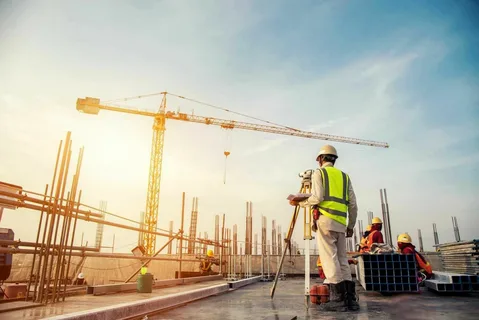The construction industry in Pakistan is a cornerstone of the country’s economic growth, playing a vital role in urbanization, infrastructure development, and job creation. Over the years, the industry has seen significant evolution, fueled by advancements in technology, governmental initiatives, and an increasing demand for modern infrastructure. In this article, we delve into the dynamics of construction companies in Pakistan, their contribution to the economy, challenges faced, and future prospects.
The Importance of the Construction Sector in Pakistan
The construction industry contributes significantly to Pakistan’s Gross Domestic Product (GDP). According to the Pakistan Economic Survey, the sector accounts for approximately 2.5% of the GDP, employing millions of workers directly and indirectly. From residential projects to large-scale infrastructure developments such as roads, bridges, dams, and industrial complexes, construction companies form the backbone of national development.
The rapid urbanization in cities like Karachi, Lahore, Islamabad, and Faisalabad has spurred demand for housing, commercial spaces, and public utilities. Coupled with the government’s focus on projects like the China-Pakistan Economic Corridor (CPEC), the construction industry has witnessed exponential growth.
Key Players in the Industry
The construction landscape in Pakistan comprises a mix of multinational corporations, local firms, and small contractors. Here are some key players:
- Habib Construction Services Renowned for its infrastructure projects, Habib Construction Services has been a leader in delivering high-quality roads, bridges, and industrial projects.
- NESPAK (National Engineering Services Pakistan) NESPAK is a government-owned entity providing engineering consultancy services. It has been involved in numerous landmark projects, including dams and power plants.
- Frontier Works Organization (FWO) A military-owned construction giant, FWO is known for its expertise in building highways, tunnels, and other strategic projects.
- ZKB Engineers and Constructors This company specializes in infrastructure projects and has been a prominent contributor to CPEC developments.
- Descon Engineering Descon focuses on industrial and power projects, excelling in engineering, procurement, and construction (EPC) services.
Types of Projects
Construction companies in Pakistan are involved in a variety of projects:
- Residential Construction With a growing population and urbanization, housing demand has surged. Companies are actively involved in building apartment complexes, gated communities, and low-cost housing schemes.
- Commercial Construction Shopping malls, office buildings, and recreational centers have become focal points in urban development, with firms integrating modern architectural designs.
- Industrial Construction Pakistan’s industrial growth relies heavily on efficient factories, warehouses, and energy plants, all facilitated by skilled construction companies.
- Infrastructure Development The backbone of national progress, infrastructure projects include roads, highways, railways, airports, and seaports. The construction of the Lahore-Sialkot Motorway and Orange Line Metro Train are noteworthy examples.
- Mega Projects under CPEC The China-Pakistan Economic Corridor has brought an influx of investment and projects, such as the Gwadar Port, energy projects, and special economic zones.
Challenges Faced by Construction Companies
Despite the opportunities, construction companies in Pakistan face numerous challenges:
- Economic Instability Fluctuating exchange rates and inflation increase the cost of materials and labor, impacting project feasibility.
- Regulatory Hurdles Lengthy bureaucratic processes and lack of transparent policies often delay projects.
- Limited Access to Technology Many local firms lack access to advanced construction machinery and software, hindering efficiency.
- Skilled Labor Shortages The industry struggles to find adequately trained workers, leading to reliance on manual labor.
- Environmental Concerns Sustainable construction practices are still in their infancy, with many projects contributing to environmental degradation.
Government Initiatives and Policies
The government has introduced various measures to boost the construction industry:
- Amnesty Schemes To encourage investment in real estate, tax amnesty schemes have been offered to developers and builders.
- Naya Pakistan Housing Program This ambitious initiative aims to provide affordable housing to the masses, creating opportunities for construction companies.
- CPEC Investments The China-Pakistan Economic Corridor has brought significant foreign investment, fostering large-scale construction projects.
- Ease of Doing Business Reforms Efforts to simplify the regulatory framework and improve construction permit processes have been initiated.
Emerging Trends in the Industry
- Sustainable Construction Green building practices are gaining traction, with companies exploring eco-friendly materials and energy-efficient designs.
- Smart Cities With the advent of technology, the concept of smart cities is taking shape, integrating IoT and AI into urban planning.
- Pre-fabrication Techniques Pre-fabricated structures are becoming popular for reducing construction time and costs.
- Digital Transformation Construction management software and Building Information Modeling (BIM) are being adopted for better project planning and execution.
- Focus on Safety Enhanced safety measures are being prioritized to reduce workplace accidents.
Future Prospects
The future of construction companies in Pakistan looks promising due to ongoing urbanization, increased foreign investments, and government-backed initiatives. Key areas for growth include:
- Affordable Housing With the Naya Pakistan Housing Program, demand for low-cost housing is expected to rise exponentially.
- Renewable Energy Projects Construction firms will play a crucial role in setting up solar and wind energy farms.
- Industrial Zones Special economic zones under CPEC will require extensive construction and infrastructure development.
- Technological Advancements Adoption of modern technologies like drones, 3D printing, and smart materials will drive innovation in the sector.
Conclusion
Construction companies in Pakistan are pivotal to the nation’s development, addressing the growing demand for infrastructure, housing, and industrial facilities. While challenges persist, the industry’s resilience and adaptability, coupled with supportive government policies and technological advancements, promise a vibrant future. As Pakistan continues to modernize, the role of construction companies will undoubtedly remain indispensable in shaping the country’s economic and physical landscape.
